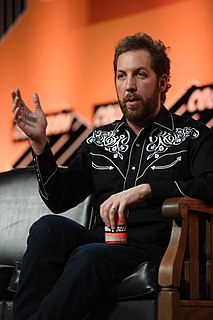A Quote by Paul Laffoley
[Buckminster Fuller] would pretend to be deaf at the right times.
Quote Topics
Related Quotes
Buckminster Fuller was down in Pennsylvania, then he'd come up and go to his island in Maine. He wanted to remain a New Englander. He taught from '48 to '49 and '50 at Black Mountain College. That's where he met Kenneth Snelson. Fuller kind of stayed a Yankee right in the New England area. So it was pretty easy to get him to come on over, and we would have lectures at the Harvard Science Center.




















